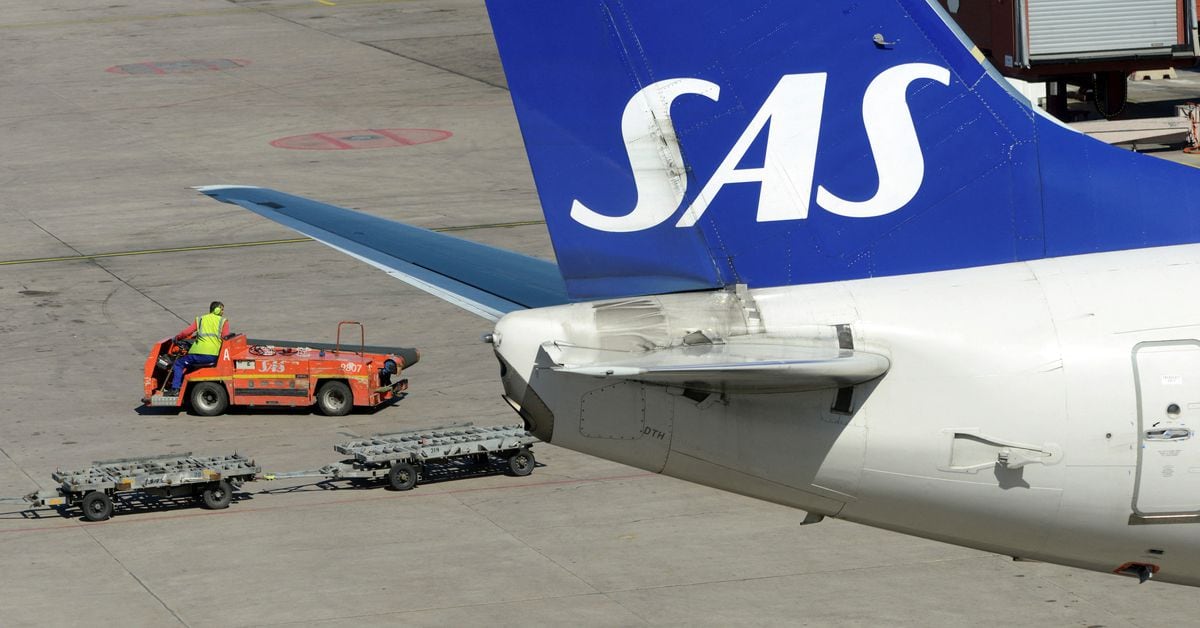A baggage belt truck passes behind the tail of a Scandinavian airline SAS Boeing 737 aircraft at the Stockholm-Arlanda airport in Sweden May 3, 2012. REUTERS/Johan Nilsson/Scanpix/File Photo Acquire Licensing Rights
BRUSSELS, Nov 29 (Reuters) – Swedish airline SAS (SAS.ST) on Wednesday won approval from EU competition authorities for its 833 million euro ($915 million) recapitalisation by Denmark and Sweden.
The European Commission reviewed the case again after Europe’s second top court in May scrapped its decision to clear the state aid due to a lack of a so-called step-up mechanism, which gives incentives to businesses to repay the aid.
In 2020, Denmark and Sweden took part in COVID-19 pandemic state aid measures to help SAS, which endured travel restrictions.
The investments were initially approved by the European Commission as compatible state aid for pandemic-stricken businesses.
The approval, however, had been contested by budget airline Ryanair which sued the European Commission for nodding through billions of euros in state aid to its rivals.
The Commission said on Wednesday that SAS has submitted the mechanism that now complies with the state aid rules and which should be put in place within two months.
SAS said in a separate statement that the measure, which is a “step-up mechanism”, includes commitments by SAS to issue new hybrid bonds to the states free of charge, pending shareholders approval.
The company said it planned to convene an extraordinary shareholders meeting in January to approve the mechanism.
Sydbank analyst Jacob Pedersen said the result was a very positive outcome for SAS, and that while it did not directly affect SAS’ bankruptcy proceedings in the U.S. it had indirectly done so.
“That this state aid was deemed unlawful has definitely impacted SAS for the past five-six months and made it a challenge in regards to the investment plan,” Pedersen said.
SAS is under Chapter 11 bankruptcy protection in the United States.
In November, it was allowed to enter into an investment agreement with a consortium consisting of Air France-KLM (AIRF.PA), Castlelake, Lind Invest and the Danish state, which are set to become its new owners.
($1 = 0.9107 euros)
Reporting by Foo Yun Chee and Marie Mannes in Stockholm; writing by Nerijus Adomaitis; editing by Grant McCool
Our Standards: The Thomson Reuters Trust Principles.
Read the full article here





